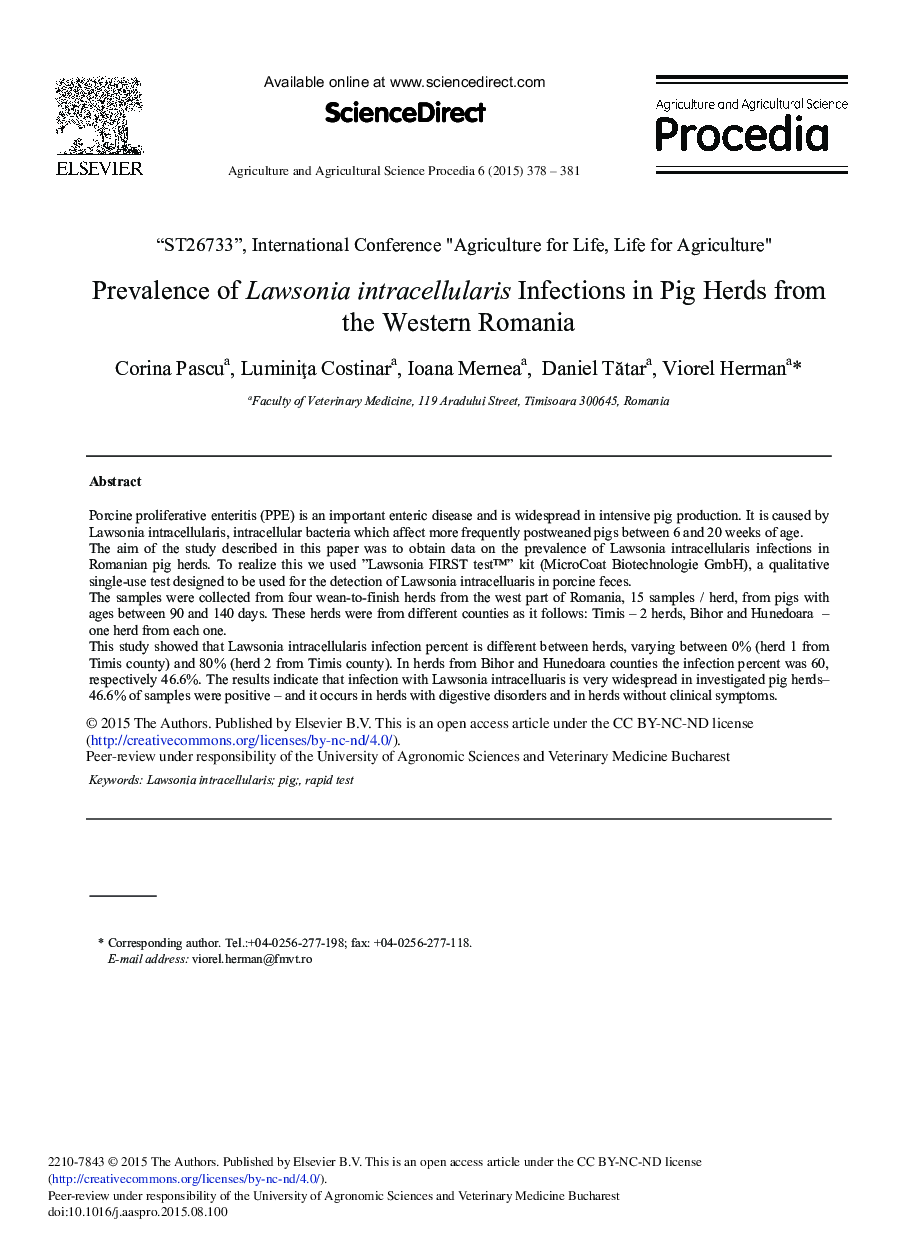| Article ID | Journal | Published Year | Pages | File Type |
|---|---|---|---|---|
| 4492455 | Agriculture and Agricultural Science Procedia | 2015 | 4 Pages |
Porcine proliferative enteritis (PPE) is an important enteric disease and is widespread in intensive pig production. It is caused by Lawsoniaintracellularis, intracellular bacteria which affect more frequently postweaned pigs between 6 and 20 weeks of age.The aim of the study described in this paper was to obtain data on the prevalence of Lawsoniaintracellularis infections in Romanian pig herds. To realize this we used “Lawsonia FIRST test™” kit (MicroCoatBiotechnologie GmbH), a qualitative single-use test designed to be used for the detection of Lawsoniaintracelluaris in porcine feces.The samples were collected from four wean-to-finish herds from the west part of Romania, 15 samples/herd, from pigs with ages between90 and 140 days. These herds were from different counties as it follows: Timis – 2 herds, Bihor and Hunedoara – one herd from each one.This study showed that Lawsoniaintracellularis infection percent is different between herds, varying between 0% (herd 1 from Timiscounty) and 80% (herd 2 from Timis county). In herds from Bihor and Hunedoara counties the infection percent was 60, respectively 46.6%. The results indicate that infection with Lawsoniaintracelluaris is very widespread in investigated pig herds– 46.6% of samples were positive – and it occurs in herds with digestive disorders and in herds without clinical symptoms.
